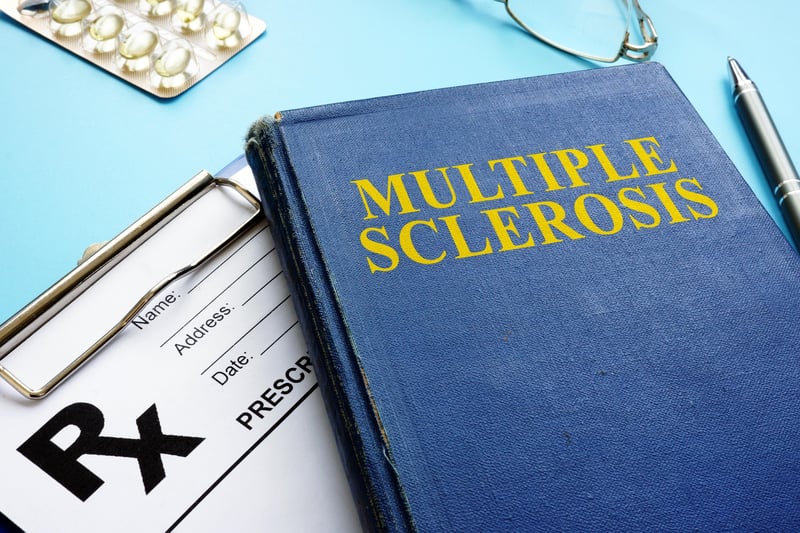Manténgase sano!

- Amy Norton
- Posted September 27, 2023
Stem Cell Treatment Halts MS for Some Patients
A new study is strengthening the evidence that stem cell transplants can be highly effective for some people with multiple sclerosis -- sending the disease into remission for years, and sometimes reversing disability.
Researchers found that of 174 MS patients who underwent stem cell transplants -- with cells from their own blood -- two-thirds had no evidence of "disease activity" over 10 years.
That meant no symptom relapses, no worsening disability and no signs of new damage in their brain tissue.
In fact, of patients who'd already developed disabilities before the procedure, more than half saw improvements afterward.
The findings were published Sept. 25 in the Journal of Neurology, Neurosurgery & Psychiatry.
Experts said the study bolsters evidence that stem cell transplantation is a good option for some people with MS.
"We do know that this treatment works and it can be performed safely," said co-author Dr. Joachim Burman, a neurologist at Uppsala University Hospital in Sweden.
However, stem cell transplants are not for everyone.
From a safety standpoint, relatively younger patients are likely to fare better, Burman said. And people with "highly active" MS -- including flare-ups despite medication -- stand to benefit most.
MS is a neurological disorder caused by a misguided immune system attack on nerve fibers in the spine and brain. That leads to symptoms like vision problems, muscle weakness, numbness and difficulty with balance and coordination.
The vast majority of people with MS initially have what's called the relapsing-remitting form, which means symptoms flare for a time and then ease. Most people, though, eventually transition to a progressive form of the disease, and their disability worsens over time.
Why treat MS with a stem cell transplant? The basic idea is to "reboot" the faulty immune system, said Bruce Bebo, executive vice president of research programs for the National Multiple Sclerosis Society.
The procedure involves removing stem cells from a patient's own blood, then using powerful chemotherapy drugs to knock down the existing immune system. After that, the stored stem cells are infused back into the patient, and the immune system rebuilds itself over time.
Bebo, who was not involved in the new study, said the results are "very consistent" with past studies following MS patients who've undergone stem cell transplants.
"We feel the evidence really has reached a tipping point," Bebo said.
In 2020, he noted, a National MS Society advisory committee published recommendations on which people are the best candidates for a stem cell transplant.
They include people who are younger than 50, have had relapsing-remitting MS for fewer than 10 years, and have suffered symptom flares or developed new brain lesions despite being on an optimal MS medication.
The younger age recommendation, Bebo noted, is aimed at safety.
A stem cell transplant is no simple matter. It requires a hospital stay and leaves people initially vulnerable to infections.
The infection risk is highest in the few days after the procedure. "After 10 days or so, you can safely be discharged from the hospital," Burman said, "and after three months you can get back to work."
The patients in this study -- median age: 31 -- all underwent the procedure at one of seven Swedish transplant centers, dating back to 2004. Overall, 73% showed no signs of disease activity at the five-year mark, and 65% were still in that category after a decade.
Of 149 patients who'd had disabilities before the stem cell transplant, 54% showed improvements afterward.
Burman said no one knows why that happens. One theory is that the chemotherapy reduces inflammation in the brain, leading to a regression in some disabilities.
"That remains to be proven, however," Burman said.
For people who are wondering whether the procedure is right for them, the best place to start is a conversation with your doctor, Bebo said.
But, he added, it's not only a matter of being a good candidate: You also need access to a medical center with experience in the procedure and an insurance plan that will cover it.
Bebo stressed that this is not an undertaking that can be done at self-described "stem cell clinics" that advertise their services for various medical conditions.
Stem cell transplants are also distinct from other stem cell therapies being studied for MS -- which are in a "much more experimental" stage, Bebo said.
More Information
The National MS Society has more on stem cell transplantation.
SOURCES: Joachim Burman, MD, PhD, consultant neurologist, Uppsala University Hospital, Uppsala, Sweden; Bruce Bebo, PhD, executive vice president, research programs, National Multiple Sclerosis Society, New York City; Journal of Neurology, Neurosurgery & Psychiatry, Sept. 25, 2023, online







